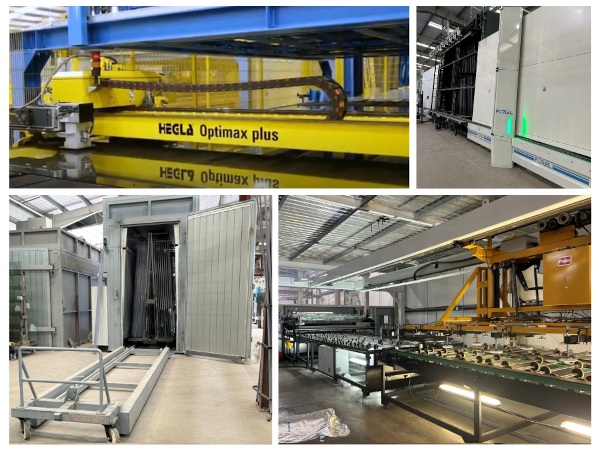Date: 8 February 2007
In specialist circles, this fully automatic arrissing machine is recognised as fast and extremely economical. It all started, as ever, with a good idea.
“When we developed the first’arris it was important that we avoided any problems associated with conventional arrissing machines,” said Lorenz Buri, who is responsible for the architectural glass division at Bystronic. “We held in-depth discussions with many of our customers, and as a result, quickly identified two areas that gave the greatest problematic issues in the arrissing process. Expensive grinding tools that wear down very quickly, and the crucial need to enter data, which often makes the arrissing process unnecessarily complicated.”
When these comments were transferred to the Research and Development department, Bystronic hit the bullseye. Consequently, an economical and extremely efficient arrissing machine resulted, which is doubtless one of the most versatile machines on the market when it comes to arrissing sharp edges. And it does not matter whether the glass for processing is single pane safety glass, laminated glass or panes for the insulating glass manufacturing process.
With its very short cycle times, the first’arris is designed specifically for medium to large quantities, and, despite its high working speed, always guarantees very gentle glass handling - absolutely vital when arrissing Low-E glass.
The versatility of the first’arris is also very convincing from the aspect of the glass shapes that can be processed. Not only does it process rectangular glass sheets, but it also handles any shape of glass sheet with straight edges.
Automatic sheet contour detection
Before the arrissing procedure starts a special sensor scans the glass edges to gather the requisite information in respect of edge lengths and angles. This automatic edge detection facility also functions outstandingly well in situations where the edge contours and edge widths change from pane to pane. Thanks to its independent data capture system, customers can decide for themselves whether they want to incorporate the first’arris into an insulating glass production line, or whether they prefer to use it as a stand-alone solution.  Top-quality cup wheel technology
Top-quality cup wheel technology
Instead of using grinding belts or profile wheels, the first’arris uses the most advanced cup wheel technology. Cup wheels are distinctive not just for their tremendously high durability, but also because they guarantee consistently even seaming throughout their service life.
Lorenz Buri points out another key advantage of cup wheel technology. “Where the glass sheets are broken beforehand, the surface edges may not run onto the wheel at right angles.
When profile wheels are used, such an unclean edge break can cause an uneven arrissing process. This does not happen with cup wheels. Therefore, arrissing is always symmetric and of consistently even quality, even on oblique edges.”
A further characteristic of first’arris is its extremely low consumption of abrasives and rinsing water. Its closed water circuit and separate water treatment unit for the seaming and rinsing zones are important features that enable such comparatively economical operation.
The machine can process glass shapes of up to 3300 mm x 6210 mm in size, and between 3 mm and 19 mm thick. first’arris is available in height versions of 2700 mm and 3300 mm.







Add new comment